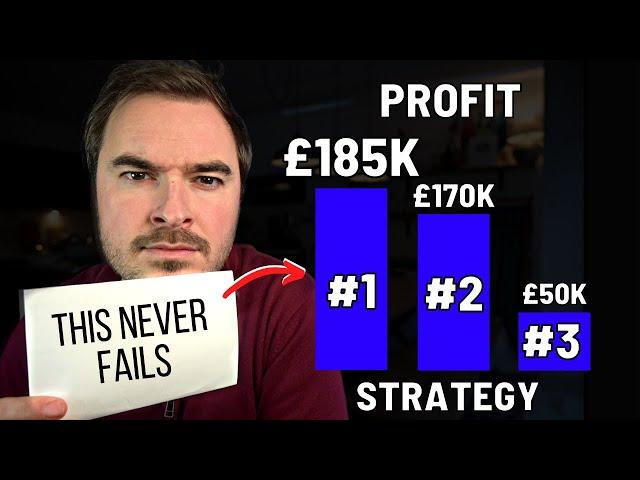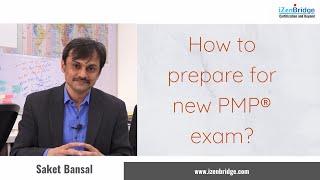
Should You Pay Off Your Mortgage or Invest? (A 50-year historical backtest)
Комментарии:

It's great to see a wide range of opinions in the comments.
Please remember that what feels right for you may not be right for someone else. There is no single right answer for everyone.

Hallelujah!!!! The daily jesus devotional has been a huge part of my transformation, God is good 🙌🏻🙌🏻🙌🏻🙌🏻🙌🏻was owning a loan of $47,000 to the bank for my son's brain surgery (David), Now I'm no longer in debt after I invested $8,000 and got my payout of m $270,500 every months,God bless Susan Jane Christy 🇺🇸🇺🇸🇺🇸..
Ответить
Awesome video. 👌 watched this a couple times now to help me try and decide what to do going forward with my options
Ответить
I did both - 1 third of available money to mortgage and 2 thirds of available money to invest - mortgage is done - now I am saving 2 thirds of my available money into a pension - I wish I invested into a Pension rather than an ISA beforehand! - I am now 54 and topping up my Pension - I had £0 when I was 45 now I have 200K in ISA's and 150K in Pensions on a £60K Salary - I wish I listened to my accountant when I was aged 22!
Ответить
An interesting perspective for any viewer aged over 50. Remember endowment mortgages? The calculation is based upon the difference in annual payments between the repayment mortgage and the interest only mortgage being invested. It seems to forget the total interest payments made over the 15 years. The extra interest paid on the interest only mortgage compared with the repayment mortgage should be deducted from the extra capital earned through investing (or maybe you did this somewhere and I missed it?). This, and high charges on with profits endowment policies, are the reasons interest only mortgages died a sudden death I believe
Ответить
Not sure i could opt for any of these but then, I have final/carear avg pension, so for me there is no better investmenat than my pension. atm my pojections mean, that the state pension plus my council one mean, i will earn more in reitrmenat than i do in work.
Ответить
Seems very much like the old method of having an endowment mortgage? So how is it that most if those failed dismally and no massive success stories ? (I had one with profits mortgage that paid out slightly more and another purely stockmarket endowment that failed, both with L&G ? I can only assume the endowment investments were handled very badly then ?
Ответить
I love this video very much, esp when you brought us through the roller coaster of the black swan events. Thank you
Ответить
Thank you , took some valuable lessons from this.
Ответить
Why aren't I surprised that Tom rejected James' convoluted (but intellectually simplistic) strategy that would have left him with a huge £200,000 bill to pay on retirement, with no guarantee that he would have that money available?
Ответить
Brilliant video James. So clear and engaging. Can I ask a quick question though? I’m 51 years old and have a couple of months left on my mortgage. I currently pay into a workplace pension to get the benefit of my employers matched contributions but I am also considering paying into a SIPP to top up my retirement fund. As I have nearly paid off my mortgage, I have plenty equity in my property and could probably get a 15 year interest only mortgage with an initial 5 year fixed rate of around 4.2%.
My question is this…. Could I take say an interest only mortgage of £60k and pay half of it into my SIPP this tax year then pay the other half into the SIPP the following year.? Would I then have £84k in my SIPP with higher rate tax relief? If so, I could then invest it in some global ETF and sit on it for 15 years and have a fund of nearly £240k at an assumed growth rate of say 7%. I would have to keep up the interest payments on my mortgage and then pay my mortgage off from my savings but I still think I’d be left with a healthy pot at the end even if the growth rate dropped by a couple of %. I’d be very interested in your thoughts. Many thanks.

I'm favoured, $60k every week! I can now give back to the locals in my community and also support God's work and the church. God bless America.
Ответить
Great video I started watching your video last year as a beginner before giving stock market a trial. I was able to make $48,000 in one month with a capital of $6,000 trading with an experience expert who guided me though out my trading.
Ответить
Wouldn't you reduce the risk level of the portfolio the closer to the 15 years? Harder to model...
Ответить
Did you test it using a Golden Butterfly Portfolio allocation? I mean there has not been more than a 3 year period when any losses in that allocation have not been recovered, and the biggest drop ever was only 11%. I suspect the golden butterfly portfolio performs even better than the 60/40 portfolio.
Ответить
Great vid, even for someone outside of UK. Thank you very much.
Ответить
Very illuminating topic! Lots and lots of food for thought.
Ответить
The simple answer is there are too many intangibles/unforeseeable's to make a clear determination. Making investments while being in a substantial amount of debt is essentially investing using margin. This promotes irrational/emotional decision making, and and a far increased chance that mechanical, out of your control reasons why you might be forced to buy when prices are high and sell when prices are low. When you are debt free it takes the emotion out of investing, and there is a far less chance that mechanics will force you one way or the other. For these reasons, it is always best to make paying down your debt your first priority unless it is something overwhelmingly obvious with essentially a 100% chance of success. For example, a company match on a 401k contribution.
Ответить
For me the piece of mind that come from a paid off house would outway the potential returns. I'd be forever on edge watching the stock makets...
Ответить
I must be a robot, as this is the strategy I followed from 1990’s at the start of my career. Lost half my pension 10 years ago and increased my mortgage by £150,000 due to divorce and I’m now retired at 60, with a 7 figure pension pot and no mortgage. 100% stocks and shares works.
Ответить
Not all of us are high earners
Ответить
This uses the assumption of a UK taxpayer, so some of the details may not be sound for someone working with a different tax code. For example, U.S. taxpayers do not have access to anything equivalent to an ISA.
The UK mortgage market is also very different from the U.S. market where a significant percentage of mortgages are fixed rate; a U.S. homeowner may have a fixed mortgage rate below 4% and maybe even below 2% - fixed for the lifetime of the mortgage. If you have a fixed mortgage rate of 3%, the analysis could look very different for you than it might for someone who is coming to the end of the fixed rate period and facing a mortgage rate that is about to go variable.
Also, it looks at a repayment mortgage vs an interest only mortgage. It would have been interesting to also compare to making extra payments on a repayment mortgage - if you have a repayment mortgage and you have some surplus income, should you make extra payments or should you make the minimum payment and invest the extra income?
There is no single right answer. Everyone has a different situation. Consider the details of your tax code, your investing opportunities, your mortgage, the possibility of refinancing your mortgage in the future, etc.

Brilliant! Recently been toying with this myself (before interest rates increased).
Ответить
If, as happens sometimes, the banksters blow up the market it's bad. The risk is losing your job in the crash. No job with a paid for house seems much safer than losing a house and job at once.
Ответить
In the end this comes down to something simple for me. If I used the extra money to invest in something else the value could go up, or it could go down. But if I used it to pay of my mortgage that debt would always go down. My mortgage would never suddenly shoot up again.
Ответить
You can jump higher from a stable surface. By paying off ofor having a lower instability you will be able go.hard on investing .
Ответить
This is just how volatility works. You just need to switch to less volatile assets in a period where the market is at ATHs, before you pay back your mortgage. Don’t draw from investments when stocks are down. Wait for mean reversion.
Ответить
James you only ever address the wealthy high rate taxpayer aka your target audience. Boom poor stay poor
Ответить
Interesting but not sure the MSCI was allowed in a PEP back in the day. Most people in the UK would have invested in the FTSE and by that I mean FTSE stocks.
Ответить
If you want to retire in a country where you can draw your pension tax-free and you're ready to rent vs own your house, this strategy is not comparable to anything else and will make you financially independent.
First start investing as much as possible in your pension. In my case, I try to invest the max £60K each year. When I calculate how much taxes this saves me, the ROI on this alone is insane- around 45%! And this is even before starting to count the returns and the compounding from my investments! But of course, for that you would need a pretty stable income.

I'd say the data is a 35 year backtest as there are 35 scenarios. If it was 50 years it would include ending just after the 1974 stock market crash, ouch. The scenarios are on the good side as they ignore the risk of the unknown unknowns and under price rare events. So if you invested in Germany in the 1930s did you get your money out or the same in Russia pre Ukraine
The figures are distorted by the uber low rates post 2008 which are unlikely to be repeated

Peace of mind for me is ALWAYS living within your means.
You don't get sleepless nights and remain in touch with reality at the same time.
I've travelled the world, and still travel a lot. We still have luxury holidays as well as long weekends regularly. At the same time we invest in isa's, our pension as well as stocks and shares (long term only). As a small family we live life to the full and never go without.
Our friends seem to struggle to do the same and are curious as to how we do what we do.
The difference is that we never went overboard on buying a larger than we need house and we didn't move on to a bigger one due to salary rises over the years (just to keep up with the Joneses)
That extra money got invested for the long term with some invested in our life experiences.
Result at late 40's is that we have house paid off, cash on the hip and lots invested meaning we are now considering working 3 days a week in the next 5 years then fully retired at at 60 with a hefty sum of cash in our pension pot, shares and savings.
We are not rich and gross C. £100k between us.
The main difference over the last 20-30 years is that we didn't shackle ourselves down to a house that would only impress others...... we've lived stress free and sill do and our flexibility towards cash on hand has set us up for the future.

This video got a subscribe. It would be rude not to after that 👏
Ответить
A repayment mortgage monthly amount of £2233 in 1992 was outside of 90% of the Uk mortgage payers so this is not realistic. This would only have been available to a very very good income or two very good incomes
Ответить
Amazing video James as always , I must at some point contact you about my finances. Thank you
Ответить
This smacks of the missold Endowment mortgages of the 80s...I used to deal with these complaints for the COOP bank years back...Their financial advisors misselling the possible returns ...very risky business doing this ...probably best to pay off capitol AND save what you can afford for investments
Ответить
I bought my first place (in Norway) in 2007 with a 25 year mortgage (if I remember correctly). I bought a second property in 2010 (with a new/readjusted 25 year mortgage). I paid off the last of my mortgage six months ago, and the value of my properties since I bought them has just about tripled. I would always put financial security above any potential future returns.
Ответить
Not paying off your mortgage is equivalent to borrowing to invest. Very risky for those of us who see our houses as homes where we bring up our families, rather than financial assets. I do think a lot of men (and it is usually men) get very nerdy and obsessed about investing and their finances (no doubt encouraged by financial advisers) and miss the bigger picture.
Ответить
I’m a long-term subscriber to this channel and have enjoyed a lot of great content but this is probably the best video so far. Tom’s situation is almost exactly identical to mine and this is an issue I’ve been debating for a few years now. Absolutely spot and data driven but with an element of human emotion. Keep up the great work and thanks James. 👍
Ответить
I am 59, mortgage paid off but the house value is pretty low. I want to move and will likely need to borrow £120k to enable this.
My dilemma is should I borrow interest only and pay the rest into a pension with the lower monthly tax rate on my earnings and trust this would give a net benefit if I claim a lump sum to pay off the mortgage when I finally retire.

Definitely pay off your mortgage. There is nothing like the feeling of being mortgage free. Speaking from experience.
Ответить
Fantastic video, excellent in depth analysis. I've always felt the pension for a higher rate taxpayer is a no brainer. We're planning on paying off our mortgage from the tax free lump sum. In order to avoid the risk of a crash just when we need the money, the final year of pension contributions will go into a money market fund within the pension instead of equities.
Ответить
I've been grapling with a similar question myself. This is one of the most useful answers I could have asked for!
Ответить
Very interesting to watch from a US point of view, mostly because in my head I needed to keep translating the UK investment and retirement terms to American equivalents. Also, the mortgage options can differ, especially with the ability to fix rates for longer terms in the US. In the end, an excellent analysis and I completely agree with the conclusion that it is important to consider not only your risk tolerance but also how you will behave. I like to imagine that I have a high risk tolerance, but when I had some spare cash I would find myself paying down my 'sure thing' mortgage rather than adding to my investment pile.
Ответить
Error at 20 m 32 sec
Ответить
I'm pretty much Tom. I've set my mortgage to repayment until 70, plan to retire at 60 and ploughing what I can into my pension.
It feels like a better balance.

2013+ all years stock market outperformed. That was when social media blew up. The world has changed. Apply some recency bias as we are not boomers
Ответить
what if the money that would go into bonds, instead went into overpaying on your mortgage?
Ответить

























